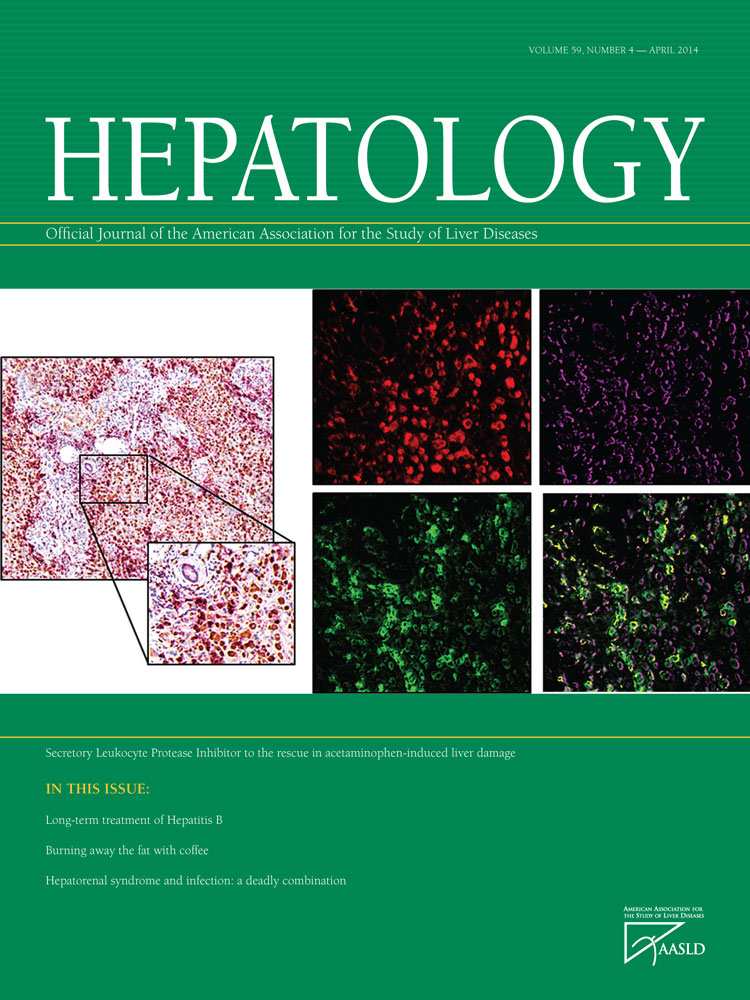Reply
Potential conflict of interest: Nothing to report.
We appreciate the insightful comments by Grebely et al. regarding the role of HCV RNA levels on disease outcome among persons with advanced chronic hepatitis C virus (HCV).1 We performed the requested analysis to address the issue. HCV RNA levels were available on all patients from the HALT-C cohort but only from 108 of the 246 patients from the NIH cohort. In the cross-sectional analysis, the mean HCV RNA level was higher between the HALT-C cohort compared to the NIH cohort, 6.40 log10 IU/mL (SD 0.56) versus 5.58 log10 IU/mL (SD 0.90), P < 0.0001, respectively. For both cohorts combined, HCV RNA levels were higher among patients with IL28B CC genotype (6.39 log10 IU/mL, SD 0.78) compared to IL28B TT genotype (6.23 log10 IU/mL, SD 0.53), P = 0.0013, but not IL28B CT genotype (6.34 log10 IU/mL, SD 0.59), P = 0.28. When CC was compared to CT and TT combined (mean 6.31, SD 0.78), the P-value was 0.087. Analyzing the two cohorts separately revealed no difference between IL28B genotypes CC and CT/TT in the NIH cohort, 5.51 log10 IU/mL (SD 1.00) for those with CC and 5.63 log10 IU/mL (SD 0.83) for those with IL28B CT/TT, P = 0.52. However, in the HALT-C cohort the mean was 6.53 log10 IU/mL (SD 0.64) for those with IL28B genotype CC and 6.35 (SD 0.53) for those with genotype CT/TT, P < 0.0001. The observation that HCV RNA levels did not differ between IL28B CC and non-CC genotypes in the NIH cohort could have been due to the small sample size.
Importantly, in multivariate analysis, HCV RNA levels were neither associated with fibrosis progression (P = 0.61) nor clinical outcomes (P = 0.75). Thus, while we found HCV RNA levels to be higher among patients with IL28CC genotype, as demonstrated previously by Grebely et al.,2 they did not influence fibrosis progression or clinical outcomes. Further studies are needed to investigate why patients with IL28 CC genotype have worse clinical outcomes compared to non-CC patients.
Acknowledgment
This research was supported by the Intramural Research Program of the NIDDK, NIH.
-
Mazen Noureddin, M.D.1
-
Elizabeth C. Wright, M.D.2
-
Marc G. Ghany, M.D.1
-
1Liver Diseases Branch, National Institute of Diabetes and Digestive and Kidney Diseases, National Institutes of Health, Bethesda, MD
-
2Office of the Director, National Institute of Diabetes and Digestive and Kidney Diseases, National Institutes of Health, Bethesda, MD




